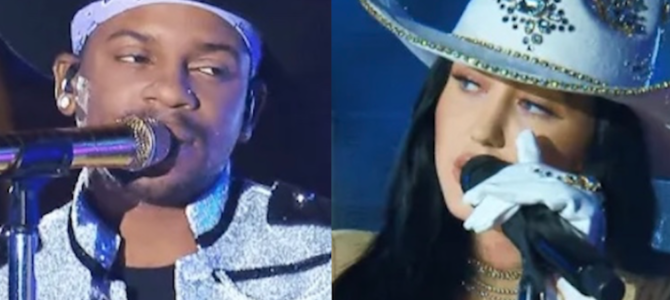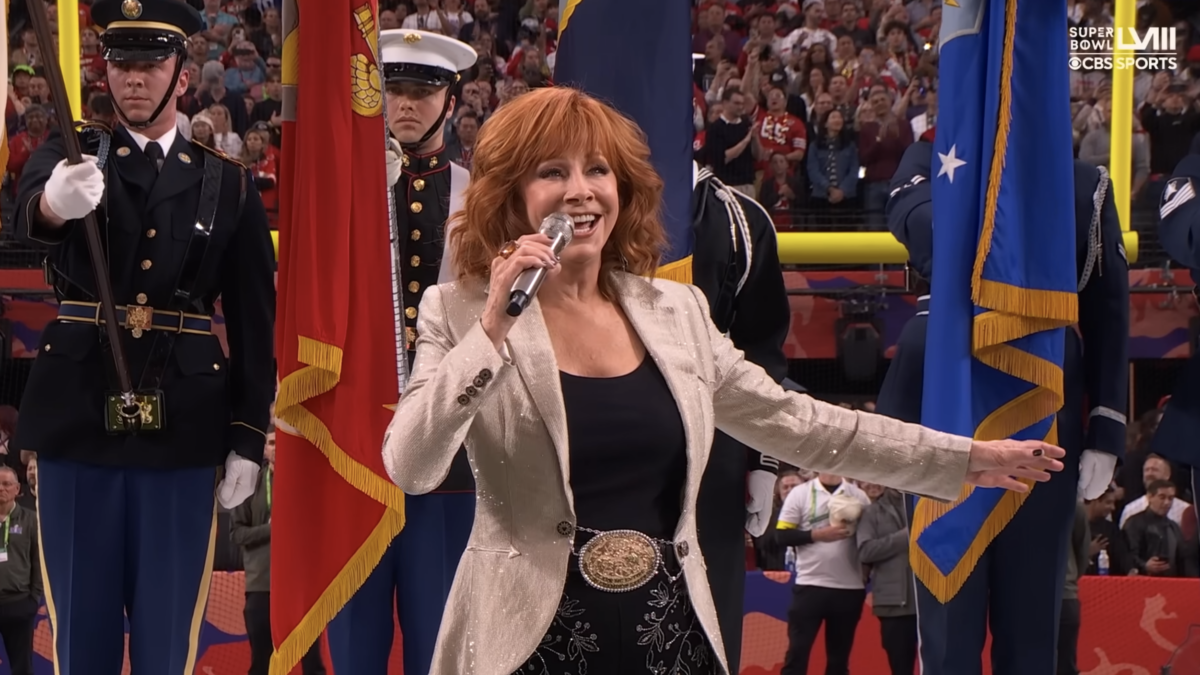
Wednesday night’s Country Music Television awards made sexual sameness the central theme of the night. CMT introduced new go-girl empowerment initiatives to enhance “inclusion,” such as “Equal Play” and a new “CMT Equal Play Award.”
Co-host Mickey Guyton explained the “Equal Play” initiative was put in place at the awards show to help “even the playing field,” ensuring an equal number of men and women performed on stage last night.
Former Sugarland lead singer Jennifer Nettles was awarded the new CMT “Equal Play Award” by co-host Sarah Hyland. “The ‘see her, hear her’ movement and the CMT ‘Equal Play’ initiative are dedicated to shining a light on women and increasing their opportunities in music,” said Hyland.
“Female artists have always been the backbone of country music, from trailblazers like Loretta Lynn and Dolly Parton, to chart-toppers and trend-setters like Shania Twain,” insisted the Modern Family star. “Yet over the last decade we have witnessed a sharp decline in airplay for female creators.”
Hyland is right about a few things. Country radio plays male artists at much higher rates than females, with data showing the female singers accounted for only 10 percent of total spins on the radio between 2010 and 2019. At the same time, country music has created some of the most incredible female artists of the century, who tend to bring unique regional perspectives to the forefront of American popular culture.
As the Federalist’s culture editor Emily Jashinsky puts it, “The perspectives of women have contributed much to country music’s proud history, particularly in amplifying the voices of rural (and even suburban) ‘flyover state’ women, often women of faith, who lack proper representation in media and popular culture.”
However, it would be unfair to chalk up the different percentages of play for women in country music to discrimination, as CMT is suggesting. In the recent past, country radio has played male and female artists evenly. In fact, from 1992 to 1999, women introduced by major labels actually had a slightly higher rate of success landing a Top 20 hit (44 percent vs. 42 percent). From 2000 to 2007, labels introduced a higher average of female artists.
Country radio, like any other business, has an incentive to give customers or listeners what they want, and some attribute the recent dip of female radio play to higher-ups in country radio and Nashville believing that female listeners don’t want to hear female artists. This is of course ridiculous. Music fans like good music, and if sexism were at play we wouldn’t have seen equal airtime in the past.
Honestly, I never really thought of the underrepresentation of women as an issue of sex discrimination, but that country radio and Nashville are simply out of touch with country fans. There are tons of female and male artists in sub-genres of country music that I wish would be included in country radio and recognized by mainstream country music award shows.
Why do I never hear artists from the Texas Country scene, like Cody Johnson or Sunny Sweeney, on the radio? What about the Kansas Red Dirt genre, with the Turnpike Troubadours? Why don’t I hear Appalachian music, which features artists like Kelsey Waldon and Tyler Childers? Where is Bluegrass and Southern Rock?
The truth is, Nashville executives prefer pop-sounding country and crossovers with pop artists because it brings in pop fans and profits. However, pushing this brand of country on fans isn’t better than distinctly country music, rich with twang and instruments like the banjo or the wire brush. Like many other fans, I do like some of the “bro country” or “boyfriend” country music from artists like Luke Bryan or Dan and Shay, but I don’t only like that type of country music.
Grady Smith, my favorite country music YouTuber, argues that while Nashville and the big labels want fans to believe country music is becoming more “diverse,” with its snap tracks and high-profile pop-country collabs, that is causing all music to sound the same. In essence, country music is turning its back on the regional sub-genres that make country the distinctly American art form that it is.
If CMT and other parts of corporate country really cared about the genre and country artists, they would broaden their horizons. Last night, Carrie Underwood won her 32nd “video of the year” award from CMT. No shade on Underwood, but we know there are other talented artists out there.
The Federalist’s Emily Jashinsky worries that we might be silencing the next Loretta Lynn. I agree, we probably are, but it isn’t because of sexism per se. It’s because corporate country music isn’t recognizing the next coal miner’s daughter whose music, like Lynn, is distinctly regional, not pop-sounding, and definitely not cross-over material.
This is a disservice to the genre and young country listeners who will never be exposed to regional country that lives outside of pop country. Corporate country music may even end up squashing those genres from the American subconscious altogether, destroying the uniqueness of country music, blurring the lines between pop and country, and making everything sound the same. It would be a shame to label all regional country music retro, and not acknowledge the living, breathing force it is.









